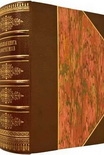Victoria Sees It, Carrie Jenkins [best classic books TXT] 📗

- Author: Carrie Jenkins
Book online «Victoria Sees It, Carrie Jenkins [best classic books TXT] 📗». Author Carrie Jenkins
It was the spur I needed, though, to dig up a few more of Newton’s secrets. His erased history. The one buried in the dirt under centuries of tourist myths and official biographies. The next morning in the College library, I found myself unable to work on anything else, so I made a search of the electronic catalogue for materials relating to Newton, and landed on a lecture John Maynard Keynes wrote (but never delivered) for the tercentenary of Newton’s death. Newton’s manuscripts, which Keynes had assembled and decoded, framed an unrecognizable portrait of this man. A no-longer-credible silhouette of his pursuit of knowledge.
Keynes confirmed my sense that there was something about this place, as well: There is an unusual number of manuscripts of the early English alchemists in the libraries of Cambridge, he wrote. It may be that there was some continuous esoteric tradition within the University which sprang into activity again in the twenty years from 1650 to 1670. At any rate, Newton was clearly an unbridled addict. It is this with which he was occupied “about 6 weeks at spring and 6 at the fall when the fire in the elaboratory scarcely went out” at the very years when he was composing the Principia…
This last comment grabbed my attention because Newton’s Principia is the book containing his theory of gravitation, his laws of motion, and all that jazz. The cornerstone of classical mechanics. To Newton’s mind, science and magic were not either-or, but overlaid with one another. I wondered if Newton was a cat person and a dog person, too. Keynes said: There was extreme method in his madness. All his unpublished works on esoteric and theological matters are marked by careful learning, accurate method and extreme sobriety of statement. They are just as sane as the Principia, if their whole matter and purpose were not magical. If.
The College, I thought to myself, must be mortified by the existence of this other Newton, this wizard in search of his philosophers’ stone. They wanted their man of science—the man of science—not some overgrown eighteenth-century Harry fucking Potter. The man who used his reason when an apple fell from a tree, not the one who hankered after the elixir of life, pinned down an earliest possible date for the apocalypse, and believed in entirely the wrong number of Gods. The College is very strict about certain matters; its “good customs” leave neither room nor need for a new heaven, or a new earth. Of course they’d kept the real Newton on the DL. Kept him quite literally incredible. I don’t tell the truth, I tell what ought to be truth.
Even so, it wasn’t until lunch that I realized. Not until I sat once more gazing up at semper eadem and poking at a plate of canteen gammon, with its one sorry pineapple slice and tiny heap of overcooked spinach winking up at me under the Hall lights, that I knew. That book—Saltness—was a perfect example. So crammed full of substance that there had to be something it was hiding. Something it deliberately wasn’t talking about. It wasn’t the words inside the book that mattered. You don’t have to get meaning out of wordstuff. You find it. So you can find it in anything. Newton would have known that. Of course he would have. Newton was looking for a fifth element because he understood that something was missing in the four. This nothing’s more than matter. That’s Laertes. What mattered about that pointedly comprehensive book was what was not there. And that was it all along, wasn’t it? The real work that Newton was trying to do, the shadow in the corner of his mind’s eye, the trick of the light that had once caught the attention of some long-past incarnation of The Eleven before being buried again in the pages of its Books, that had briefly flickered out at me one evening, when I was too distracted and miserable to chase it. What was missing. Not just from that book, not just from my life without Deb, but from everything.
And instead of searching for it, everyone was expending all their efforts on denying there was anything to find.
My head was hurting, and the bright bridge was there again in the centre of my field of vision, but I wasn’t feeling sick so I scoffed down all the food on my plate, except for the last bite. (My aunt had drilled this habit into me since infancy—“so nobody thinks you are starving!”) I slid my tray of used dishes onto the conveyor belt that took it to the unseen kitchen for someone else to deal with, and walked out through the heavy doors into the cold sun.
The food returned my blood sugar to equilibrium, and I came quietly back down to earth. What was I thinking? Nonsense, crazy talk. I’d felt light-headed in the museum from the cleaning products, that was all. I’d had a brief relapse before lunch because I hadn’t eaten since the night before.
Dammit, I needed to keep my feet on the ground, didn’t I? To help Deb.
—
When you’re lost in a forest or a city, the thing to do is to proceed in a straight line. I studied what I was there to study, Logic, language, the mind, mathematics, metaphysics. I became intensely skilled in the kinds of abstract hypotheticals I had first practised in the library with Gin. I learned all the theoretical vocabulary





Comments (0)